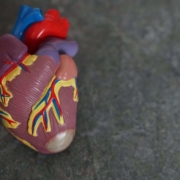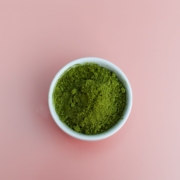“I cannot teach anybody anything. I can only make them think.”
Socrates – Greek philosopher 399 BC
Our environment around us dictates a lot for our health; whether it be the food we eat, the air we breathe or the water we drink, they all impact us and our health.
For a lot of us, the environment may be putting added stress on our bodies; for example, pollution in the air means we inhale all sorts of chemicals which are toxins; once in the body, they can affect many systems and the body’s cells, ultimately this affects how we function and can lead to health issues and diseases.
Toxins are simply a wide range of substances that have varying degrees of poisonous effects on the body, and the amount of toxins we encounter is referred to as the toxic load. Our exposure to toxins is much more common nowadays compared to a century ago; new chemicals are made constantly; they can be found in household products for cleaning, and hygiene, and much of our food production has been sprayed with pesticides, and our water often contains pollutants,
Through this article, we refer to Oxidative Stress and Free Radicals;
Free Radicals are molecules with an uneven amount of electrons; this means they are very reactive and can cause damage to the body and its cells.
Oxidative Stress is the imbalance between antioxidants, and free radicals in the body, more free radicals without sufficient detoxification means there is more stress.
If either of these accumulates, they can cause damage and adverse effects in the body we do not want, we do need them in small amounts, but in our current environment, we are likely getting far more than we need.
What are NAC and Glutathione?
N-Acetyl Cysteine (NAC) is an amino acid that has benefits for numerous systems of the body from the lungs to the brain.
Glutathione is one of the main antioxidants in the body, needed to help remove toxins and unwanted substances. These two work together since NAC and Glutathione share the same pathway, so NAC is a precursor which helps to make Glutathione.
What do they do/why might they be important to me?
Glutathione is well renowned within health circles; as we have mentioned, it is an important antioxidant, but its role is much greater.
Amongst its functions, it helps break toxins in phase 1 liver detoxification and helps remove these toxins in phase 2, helps to produce antioxidants Vitamin C and E, helps regulate cell growth and removal, and maintains the mitochondria of cells which are vital for our health.
-
Liver Health
The liver is the body’s main detoxification site, so whatever toxins the body encounters, the liver will be where it is processed. Whatever toxins the liver encounters, they must go through stages of processing, the first is ‘subtraction’ of the bad substance into a less harmful form, and then the second is removal.
If you imagine your liver as a processing plant with 2 main stages, it firstly takes things (toxins) and breaks them down first before then secondly using a conveyor belt (the antioxidants) to actually get them out of the system.
Both of these phases of liver detoxification require antioxidants, with NAC and glutathione being important in both phases, so supplementing NAC or glutathione provides direct support to the liver’s processing of toxins which lessens the strain and workload on the liver as well reduces the harmful effects of those toxins on the body (such as cell damage, etc).
-
Lung Health
NAC also has a fair amount of research on improving the respiratory system’s health. It helps reduce mucus thickness and inflammation in the lungs; NAC is effective in several respiratory conditions, including those with Cystic Fibrosis, Chronic Bronchitis and Chronic Obstructive Pulmonary Disease.
One study found that taking up to 3g per day effectively reduced inflammation in cystic fibrosis (6), and another found that 61% of subjects who had chronic bronchitis found their symptoms relieved (7).
Clearly, being a great antioxidant and anti-inflammatory helps freedom of airflow in the respiratory system by helping relieve the airways and reduce mucus thickness.
-
Brain Health
NAC is also great for the brain; this is because NAC affects several areas which are key for brain health, including toxicity, inflammation and neurotransmitters. As mentioned with regard to the respiratory system, there are anti-oxidant and anti-inflammatory benefits; these are the same for the brain and help to keep the neurons (brain cells) relieved from damage by toxins or oxidative stress. NAC also can get to the brain and increase glutathione levels.
The brain’s chemical messengers, called neurotransmitters, are important for how well we focus, how alert or quick we are, or vice versa. NAC upregulates dopamine, which is responsible for reward, focus and drive, whereas NAC manages glutamate, so it does not overburden the brain cells.
So it provides regulation of chemical messaging; this has had research supporting NAC for use in psychiatric conditions, mood and anxiety. (11).
What to take, when and why?
Initially, just taking a good multivitamin containing NAC will benefit you, as this will provide you with some basic antioxidant support.
A principle of training, nutrition and supplementation is a gradual progression, so instead of diving in and taking one of the strongest antioxidants out there, we start with small doses of its precursor and see the results. If there are no significant changes, we can progress further and reassess.
It would be like passing your driving test and then jumping straight into a Ferrari, you will struggle to handle it, and it will be a shock compared to the small Ford Fiesta you took your driving test with. Instead, you must progress up the engine sizes before getting into a sports car.
So taking a multivitamin that includes NAC and other antioxidants is a good start, then depending on how you feel, react and what you observe, the progression to taking NAC directly can be made. If there is still room to improve and work to be done, then taking Glutathione itself is the next and final step.
Our Human Performance Hub Multi Vitamin Drink, which provides 100mg of NAC per serving
OurNAC (N-Acetyl Cysteine), which provides 900mg of NAC
Start your doses low here, take 1 capsule per day, and you can progress to taking 3 capsules per day depending on the results.
Again, low doses to start with and reassess every few weeks. Glutathione is one of the body’s strongest antioxidants. There is no need to rush to high doses here. I suggest starting in the morning with breakfast, as taking in the evening might disturb your sleep. Start with 1 pump and then progress to 3. Once the body has adjusted to the dose, then progress to taking it in the morning and evening again, starting back down at 1 pump.
Antioxidants are important for our health; we have covered a range of reasons why they should be used and what benefits they provide. Don’t be hesitant to get in touch if you need further individual-specific advice.
Consultations
We’re always here to help. If you have any questions or would like advice about supplements, nutrition, or training, please book a consultation.
Disclaimer
Always speak with your physician or other healthcare professionals before making any nutritional & lifestyle changes or before taking any nutritional supplement. For more information, please view our terms & conditions.
Further Reading:
- https://www.healthline.com/nutrition/nac-benefits
- A Review on Various Uses of N-Acetyl Cysteine
- N-Acetyl Cysteine™
- PubMed – J. Pizzorno – Glutathione!
- Glutathione dysregulation and the etiology and progression of human diseases
- High-dose oral N-acetylcysteine, a glutathione prodrug, modulates inflammation in cystic fibrosis
- The Effect of Oral NAC in Chronic Bronchitis: Review
- Health Effects of Toxic Chemicals
- Oxidative Stress and Inflammation in Hepatic Diseases: Therapeutic Possibilities of N-Acetylcysteine
- http://www.balancedconcepts.net/liver_phases_detox_paths.pdf
- https://nootropicsexpert.com/n-acetyl-l-cysteine/#the-research












